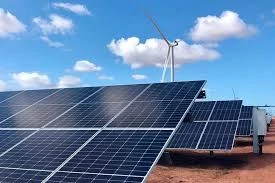solar panel efficiency heat
Understanding Solar Panel Efficiency and Heat Key Factors for Optimal Performance
Solar energy has emerged as a promising solution to combat climate change and reduce dependency on fossil fuels. However, the efficiency of solar panels plays a crucial role in determining the overall effectiveness of solar energy systems. Efficiency relates to how much sunlight a solar panel can convert into usable electricity, and it is influenced by several factors, including temperature.
The Efficiency of Solar Panels
Solar panels work by converting sunlight into electricity through the photovoltaic effect. The efficiency of a solar panel is defined as the ratio of electrical output to the solar energy input. This efficiency can vary significantly between different types of solar technologies, with monocrystalline panels typically achieving higher efficiency ratings than polycrystalline or thin-film options.
The maximum efficiency achievable by solar panels has been steadily increasing due to advancements in technology and materials used. As of 2023, some of the most efficient solar panels on the market boast efficiencies over 22%. However, efficiency is not purely a number; it cannot be interpreted in isolation without considering external factors such as temperature.
Impact of Heat on Solar Panel Efficiency
One of the major factors affecting solar panel efficiency is temperature. As the temperature increases, the efficiency of solar panels usually declines. This might seem counterintuitive, as more sunlight would typically lead to higher electricity generation. However, the photovoltaic cells within solar panels generally operate optimally at lower temperatures.
solar panel efficiency heat

Higher temperatures can cause an increase in the resistance within the solar panels, leading to a reduction in voltage output. Consequently, while solar irradiance (sunlight) increases, the overall energy produced can actually decrease if the panels are operating at higher temperatures. This phenomenon is often referred to as the temperature coefficient, which quantifies the extent of efficiency loss in relation to temperature increases.
Mitigating Heat Effects
To address the impacts of heat on solar panel efficiency, several strategies can be implemented. Firstly, the installation of solar panels should consider their orientation and angle to minimize direct exposure during the hottest parts of the day. Enhanced ventilation underneath solar panels can also aid in heat dissipation, helping to maintain optimal operating temperatures.
Additionally, innovative cooling technologies are being developed. These include passive cooling systems that utilize materials designed to minimize heat retention, and active cooling systems that involve fluid circulation to reduce panel temperature. By employing such technologies, it is possible to counteract some of the negative impacts of heat on solar panel efficiency.
Conclusion
In conclusion, while solar panel efficiency is a critical factor in the effectiveness of solar energy systems, understanding the role of heat is equally important. As global interest in solar energy continues to rise, ongoing research and development will be essential to improve solar panel technologies, optimizing their efficiency even under varying temperature conditions. By utilizing advanced techniques and thoughtful design in solar panel installation, we can ensure that solar energy becomes an increasingly viable and efficient source of power for the future.
-
Unlocking Energy Freedom with the Off Grid Solar InverterNewsJun.06,2025
-
Unlock More Solar Power with a High-Efficiency Bifacial Solar PanelNewsJun.06,2025
-
Power Your Future with High-Efficiency Monocrystalline Solar PanelsNewsJun.06,2025
-
Next-Gen Solar Power Starts with Micro Solar InvertersNewsJun.06,2025
-
Harnessing Peak Efficiency with the On Grid Solar InverterNewsJun.06,2025
-
Discover Unmatched Efficiency with the Latest String Solar InverterNewsJun.06,2025







